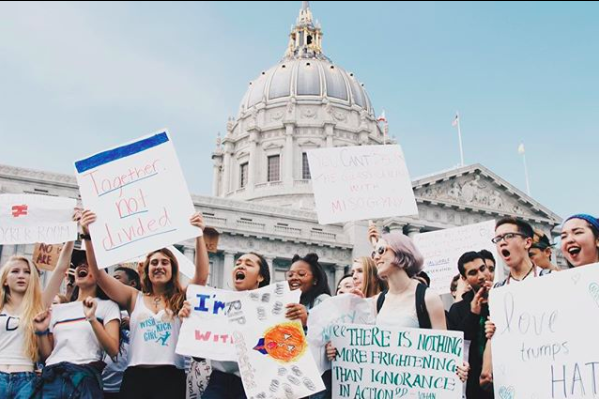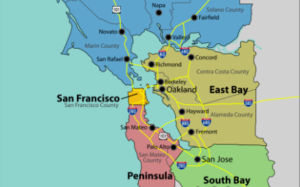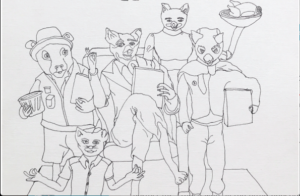
photo by Ryan Yee @ryanyeephotography
For more than two years, the Fostering Activists for the Next Generation (FANG) Club, in collaboration with Student Council and the administration, has been working to create a new attendance policy that would allow students to attend social justice-related events without receiving a grade cut.
In order to receive the grade cut removal, students need to fill out a questionnaire within two weeks after the event detailing their experience, proof that they attended and how and why attending was important for them.
After the form is submitted, the Student Inclusion Chairs, based on the student’s depth of responses, would either approve or reject the request for a grade cut removal. The deans would not be involved in this process unless an extenuating circumstance had to be considered—for example, if there was clear evidence that a student did not attend the social justice-related event they wrote about in the questionnaire.
However, the new attendance policy has some exceptions. There is no grade cut, but a “cut for social justice work” will still appear on students’ transcripts. Any missed classwork or assessments would still receive a zero, any quarter-dependent assessments, as determined by the deans, would receive a ⅓ grade deduction and homework would still need to be turned in on time. The campaign for a new attendance policy began after student responses to the Marjory Stoneman Douglas High School mass shooting in Parkland, Florida in 2018. Lick students hosted an outside-of-class community gathering where they could discuss their reactions to the shooting and what action they felt had to be taken. The Lick administration decided that students could participate without a grade cut for the first 30 minutes. After that, students who continued to participate could either accept their grade cut or negotiate the cut with their teachers.
However, at a concurrent “Day Without Immigrants” walkout protesting ICE (U.S. Immigration and Customs Enforcement), all attending students received grade cuts.
These two different events and administrative responses brought up questions about the inconsistency in how walkouts were handled and spurred student discussion about creating a new attendance policy that would be conducive to all types of activism.
One of the students involved in these discussions was Nevin Chin ‘20, a leader of FANG. He said that the main goal of creating the new attendance policy was to give students more of a say in what pursuits they could participate in.
Aside from restricting student attendance at social justice-related events, the previous attendance policy made it difficult for Lick students to collaborate with other public and private schools in attending actions: “There’s not a single other school that I know of in San Francisco, including publics, including privates, that has a punitive attendance policy,” said Chin. This key difference meant that while other high school students could coordinate events, Lick students had to stay on the sidelines or receive a grade cut.
Aspects of the previous attendance policy, however, could be mitigated through negotiations and discussions with teachers, which allowed for favoritism and bias to come into play.
The enforcement of a grade cut also limited who could be involved in activism. Chin said that “student activists could only be people who were also performing well academically.”
Students could also get around the grade cut by having their parents call in an excused absence; their child would receive no cut or penalty. However, Chin said, “students are at the mercy of someone else in order for their activism to be viable.” He hopes that with the new attendance policy, activism will be accessible to all students and that activists will not be limited by their circumstances.
To make the new attendance policy, FANG worked with last year’s Student Inclusion Chairs, Sabrina McFarland ‘19 and Elliott Rosenberg ‘19, and the administration. Their main goals were to make students responsible for handling their grade cuts and missed classes, eliminate potential bias, lessen the burden on teachers to reteach material and allow students to have more freedom in activism participation.
Throughout the process, Chin said, the administration was always supportive of a new policy. The main complications arose from what the policy should look like and how it should be enforced.
Initially, there were concerns about students using the attendance policy to cut class instead of actually engaging in activism. One of the current Student Inclusion Chairs, Journey Moore-Prewitt ‘21, said that this concern is something that the school “has to get over.” She said that if students were going through the trouble of filling out the attendance policy form just to skip class, there was nothing that could be done to stop them. Director of Student Inclusion Naomi Fierro further addressed this concern, saying that “the policy forces students to explain or justify why they chose to fight for equity…we should believe students and foster their learning outside of the classroom.”
Another topic of debate was who would be in charge of approving the student-submitted form. Putting all the responsibility on FANG would be “biased,” Chin said. FANG, which centers around student activism, would likely side with the student when deciding whether or not to approve the form. FANG believed that an unbiased student body, likely student council, should review the submissions.
However, the administration believed that putting the responsibility on student council would be too much of a burden. This topic was settled when the current Student Inclusion Chairs agreed to go through the grade cut requests. Moore-Prewitt said that not many students are expected to fill out the form anyway.
Fierro, however, disagrees with this aspect of the policy. She said, “I don’t think that it is a student’s, or adult’s, place to judge the validity of someone’s cause…I think this places an undue burden on students who have to make a value judgment on their peers.” Fierro adds, due to the policy’s deduction on major assessments, the “policy seems punitive.”
Despite its potential faults, Moore-Prewitt still thinks this policy is a positive step forward and is incredibly appreciative of the hard work FANG has put into the policy. The “school’s living up to its mission statement that it’s a private school with a public purpose,” she said.






